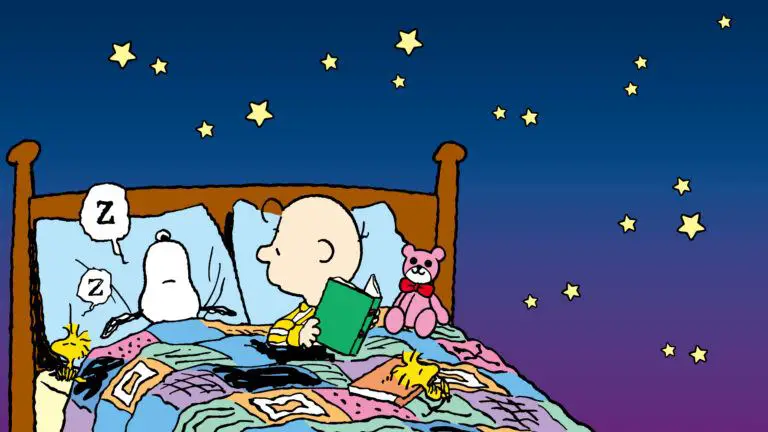Should I Sleep 5 To 6 Hours A Day?
- Of course, it’s possible to sleep 5 to 6 hours a day, we’ve all done it. Whether studying, working overtime, or after a party. But should we adopt it as a habit? Should we waste less time sleeping to be more productive?
We all know that the idea is to have a sleep routine that respects the eight hours of rest per night, but we all also know how difficult it is to have time – and the will (thanks to Netflix and Smartphones) – to achieve this goal.
In general, we tend to sleep six hours every night in the belief that we are not harming our health and we are even safeguarding the necessary rest that our body and mind need. But not.
Many studies show that sleeping six hours or less a night increases the risk of atherosclerosis – inflammation that promotes the buildup of plaque in the arteries, leading to increased oxidation of lipoproteins in the arterial walls.
But it’s not just the hours of sleep that count. Those who sleep less than six hours a night have a 27% risk of suffering from this degenerative disease, but those who sleep poorly regularly have a 34% risk!
Investigations also reveal that sleeping six hours or less further increases the risk of heart disease, something once detected by science.
Experts also suspect that feeling tired or dizzy after sleeping for four to six hours is a sign that something is wrong. The most disconcerting group is people who sleep four to six hours and say they feel good.
It should be noted that not getting enough sleep not only increases levels of tiredness but also disrupts the hormonal system – including the hormones that control appetite – increases the risk of obesity and diabetes.
Ten days sleeping 6 hours, according to the research, has the same effect on your cognition as spending an entire night awake: it reduces reflexes and reaction speed and hinders even the ability to interpret texts. However, the danger in this situation is that people feel good physically and mentally, delaying the change in that habit, or pushing it to the limit.
Are you looking at that promotion and thinking about reducing your sleep hours to increase your productivity? It might be a good idea to rethink this strategy. According to experts, the image of the successful executive who has an above-average job performance at the expense of less rest time is far from reality. Yes, sleeping 5 hours a day is bad for both your health and your career and can make you increasingly distant from your professional goals.
Understand better!
After all, is it true that successful people get little sleep?
Although it is not difficult to find someone with a certain pride who has slept little due to job responsibilities, following the result of many news and investigations, it is concluded that these variables are not related.
Many CEOs from various companies (Bill Gates, Tim Cook, Elon Musk) have never given up sleeping at least 7 hours a day.
We are in a time when there is the primacy of success and the primacy of money and I say exactly the opposite: to have money, success, and to think well it is better to sleep.
People who sleep very little (less than 5 hours a night) are more likely to develop psychological health problems.
Research suggests that for every hour lost of sleep, there is a 14% increase in the risk of negative emotions that affect our ability to function daily; a 38% increase in the likelihood of feeling sad; or a 23% increase in the likelihood of using tobacco or alcohol.
Is sleeping 5 to 6 hours bad?
When you sleep little, the first to suffer is your brain. Sleepless nights:
- Decrease your ability to concentrate;
- Decrease reflexes and reaction speed;
- Increase irritability;
- They can affect your ability to interpret texts and analyze simple situations.
Spending a sleepless night can leave you with cognitive performance similar to that of an alcoholic.
It is known that people with Alzheimer’s have difficulty sleeping.
Insomnia and daytime sleepiness are common in people with the same condition, as well as other cognitive disorders, such as dementia with Lewy Bodies (a disease that affected actor Robin Williams) and frontal lobe dementia.
But does poor sleep lead to dementia? – and which comes first? This “chicken and egg” issue.
People who have less deep sleep (REM) may be at a higher risk of developing dementia. REM is the fifth stage of sleep, when your eyes move, your body warms up, your breathing and pulse speed up, and your mind dreams. Some findings align with the idea that poor sleep can contribute to the accumulation of Alzheimer’s-related proteins in the brain. offering a window of opportunity for intervention.
For those who ask themselves “is 6 hours of sleep enough?”, The answer is that it depends. Although some people can function properly at various levels with 6 hours of sleep, many people do not feel better than those who sleep up to 8 hours.
The problem is that their body thinks that this is already the new normal for them, but it may just be a way of ignoring that side effects are being deprived of their much-needed sleep, which is beginning to be felt in the form of mood swings, low energy levels, daytime sleepiness, and weight gain as well.
Going back to the beginning.
Should I sleep 5 to 6 hours?
Should we adopt it as a habit?
Will we waste less time sleeping to be more productive?
No. We are not going to be more productive. We won’t get used to it. And even if we feel that we are, we are destroying ourselves, physically and mentally
In short, the extra time you “gain” while sleeping less does not translate into greater productivity or health benefits. There’s no excuse for us, and neither findings that say to us that we should sleep 5 to 6 hours.
A peaceful night’s sleep improves your mood, contributes to the maintenance of your memory,
and reduces the risks of developing diseases such as depression and obesity.
Excellent reasons for not giving up the rest, isn’t it?







